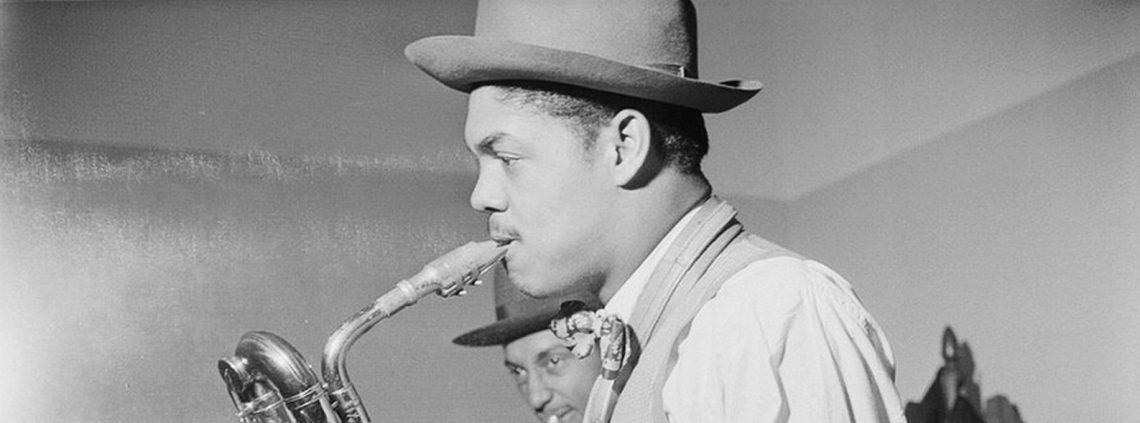
Welcome to leoparkermusic.com. Here, we aim to honor and respect the legacy of the great baritone saxophonist and progenitor of bebop, Leo Parker.
A Native of Washington, D.C., Parker’s first instrument was the alto saxophone, and on that instrument, he played on Coleman Hawkins’ 1944 recording sessions which produced what would later be dubbed the ‘first bebop recordings.’
Later on in the same year, Billy Eckstine needed a baritone saxophonist for the saxophone section of his new, ground-breaking big band. Eckstine bought Parker a baritone, and from then on, Parker would stick with the instrument. He would continue on to become one of the very first and finest exponents of bebop on the baritone saxophone.
Eckstine’s band was an incubator for modern jazz, and many of the genre’s greatest names including Charlie Parker, Art Blakey, Dexter Gordon, Miles Davis, Dizzy Gillespie, Fats Navarro, Kenny Dorham, Tommy Potter, Sarah Vaughan, Gene Ammons, Lucky Thompson, and Sonny Stitt passed through its ranks. At one point Eckstine’s saxophonists Stitt, John Jackson, Gordon, and Parker became known as “The Unholy Four.” Parker remained with Eckstine’s band through 1945, touring and recording extensively.

After leaving Eckstine’s band, Parker briefly toured with Benny Carter. In 1946, he was a member of Dizzy Gillespie’s sextet and big band. He would next join Illinois Jacquet’s popular and successful combo in 1947. Since Jacquet’s band was much smaller than Eckstine’s big band, Parker was able to be regularly featured as a soloist. Jacquet was one of the leading tenor men of the day, and through touring and recording with him, Parker started to gain widespread exposure and acclaim.
1947 also saw Parker recording under his own name for the first time as well as with the bands of Fats Navarro, Sir Charles Thompson, Gene Ammons, Dexter Gordon, and J.J. Johnson.
Parker left Jacquet’s band in early 1948 and set out to form his own quintet. After a promising start as a bandleader, health issues would sideline Parker until around 1950.
Now, spending most of his time in Chicago, Parker worked sporadically in town and throughout the Midwest through 1954. He led a number of small group record dates for Prestige, Gotham, Chess, United, Parrot, and King.
Parker would be largely inactive on the music scene again until 1961. He was hospitalized in 1958 with tuberculosis.

In 1961, Parker was making a comeback thanks to Ike Quebec, Alfred Lion, and Francis Wolff at Blue Note records. Parker recorded 2 LPs over three sessions late that year. There was an additional Blue Note session scheduled for early 1962 which would pair Parker with his old Eckstine section-mate Dexter Gordon. But that session unfortunately never came to fruition. Parker passed away on February 12, 1962 at the age of 36.
Leo Parker’s baritone style combined the sonic might of Harry Carney, the bebop sensibility of Charlie Parker and the rhythmic excitement of Illinois Jacquet. He successfully synthesized these influences, and others, to become one of jazz’s greatest baritone saxophonists.
For such an important figure in jazz, much remains unknown about Leo Parker. Very much a work in progress, this website presents our research into Parker’s life and career. Striving for historical accuracy, we welcome any additions, corrections, or comments. (Click on our names below to get in touch.) Please visit the various pages for more in-depth information. We hope this site will be enlightening to Parker’s fans, and that it will expose Parker to those who may be unfamiliar with his work.
